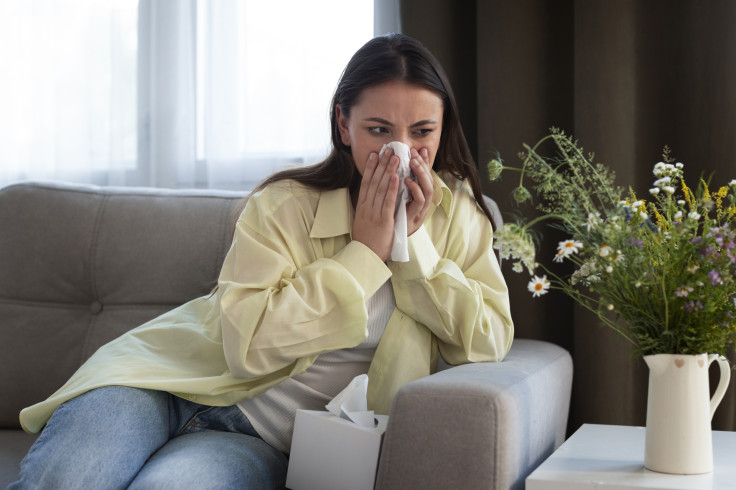Know All About Seasonal Allergies: Expert Tips To Reduce Symptoms

While spring brings about gentler temperatures and the blossoming of flowers, it may not be the most pleasant time for people with seasonal allergies. Nevertheless, early diagnosis and taking suitable precautions can help people effectively manage the pollen-heavy period from February to early summer.
Seasonal allergies, known as hay fever or allergic rhinitis affect almost 60 million U.S. adults. According to Dr. Reenal Patel, board-certified Allergist and Immunologist, about 25% of adults have seasonal allergies. It is also very common for people who do not have any allergies in childhood to develop new ones in adulthood.
"Spring allergies can trigger a variety of symptoms in patients. We have seen it all as allergists. They can affect the most common ones like eyes, ears, nose, throat, and lungs. Also, we can see allergies affect mental status [fatigue, headache], the skin, and the gastrointestinal tract," Dr. Patel, who is also the founder of Allergy MD in Long Island City, NY, told Medical Daily.
The most common signs of seasonal allergy include runny nose, nasal congestion, cough, itchy nose or throat, watery and itchy eyes, sneezing, post-nasal drip, swollen eyes, and tiredness from disturbed sleep. The allergies can also lead to asthma and breathing difficulties.
If a person has any of the mentioned symptoms at certain times of the year, it is best to get tested for seasonal allergies. The allergy diagnosis is often based on history, a skin prick test, and/or blood work, Dr. Patel said.
How to manage symptoms of allergy:
Identifying the allergens is the first step towards managing symptoms effectively. Besides seeking prompt medical assistance, individuals with allergies must exercise caution to avoid triggering factors.
"I recommend showering before bed. Limit your time outside during high pollen days. If you must go out wear a hat and sunglasses. Keep the windows closed in your home and car. Consider running an air purifier in the bedroom," Dr. Patel said.
When the triggers cannot be limited, doctors might recommend a customized treatment plan for the individual. "We can treat it with many over-the-counter medications like oral antihistamines, eye drops, and nasal sprays," Dr. Patel noted.
"If this does not help, we can offer prescription-grade antihistamines, eye drops, and nasal sprays. We can also treat individual symptoms depending on what you are feeling. Long-term therapies like allergy immunotherapy can be offered via allergy shots and sublingual drops or tablets. Speak to your allergist to receive a custom plan for you!," Dr. Patel added.



























